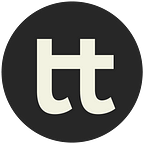Women, civil society & leadership: Breaking the glass ceiling and advancing women’s rights
By Jessica Correa, internationalisation coordinator at Transversal Think Tank
Speakers: Edna Jaime (General Director of México Evalúa), Sofía Ramírez Aguilar (General Director of México Cómo Vamos), Mónica Meltis (Executive Director of Data Cívica) & Liliana Alvarado (Interim Director of Ethos). Moderator: Fernanda Elías (Transversal Think Tank).
Summary
Since the arrival of women to leadership positions, think tanks in Mexico have undergone fundamental changes. The second session of the OTT Local Conference: Mexico 2021 addresses, from the perspective of female think tank directors, the challenges that women face when accessing leadership positions and the impacts that their arrival has had inside and outside the organisations they represent.
Key takeaways
Women and think tanks: How did we get here?
Undoubtedly, the feminist movement and the fight for gender equality have been influential in women’s access to management positions in think tanks. By creating more horizontal structures that allow for the development of collective leadership and flexible working modalities, civil society has been a space that empowers women to make working life compatible with private life.
‘There is no coincidence in the fact that so many women are leading think tanks, these are a meeting space for women that want to achieve professional development (…) What a think tank offers is a space where different ambitions can be made compatible’ — Edna Jaime, General Director of México Evalúa.
Impact of women’s leadership
One of the most meaningful impacts that the arrival of women in leadership positions has had is the formation of a favourable environment for the participation of women in all areas of think tanks. The speakers have promoted horizontal schemes and flexible working modalities that consider the particular needs of the members of their teams.
Women’s leadership has also allowed for the creation of intergenerational links to accompany each other, dialogue, and work from a collective perspective that favours the construction of policies that remain over time.
‘As a young woman, it has been fundamental to be accompanied by women who can share their learnings and experiences with me’ — Mónica Meltis, Director of Data Cívica.
Leadership challenges: Strengthening change
In a world run by men, with highly masculinised leadership models, deciding between masculine leadership characteristics and embracing femininity is one of the main challenges faced by female think tank leaders. Women in leadership positions are not — yet — perceived as ‘normal’; to normalise their leadership it is essential that other women sustain the learning curve and that men, in particular, join the change.
‘Sometimes we expect team members to dedicate long hours to research and to be available to take calls from the media at any time (…) These expectations are more related to “masculinised” job traits because women, in addition, have to fulfil domestic responsibilities’ –Liliana Alvarado, Interim Director of Ethos.
Looking forward: Diversity and inclusion
While Fernanda Elías (session moderator) read at the beginning of the dialogue the bios of the panellists, it became evident that the guests shared something in common: they were all graduates of the Autonomous Technological Institute of Mexico. This inadvertent coincidence sparked an important and necessary conversation about diversity and inclusion in civil society and think tanks.
The panellists led a discussion on the much-needed mechanisms to promote diversity and inclusion in hiring processes, emphasising the need to:
- Establish a discussion around the practices and requirements commonly requested during the recruitment of personnel and,
- Immediately incorporate policies that allow for the arrival of women with diverse backgrounds to decision-making positions.
‘The first step is talking about it, is it enough to hire people from other universities? Or is it necessary to go a step further and look for other types of profiles, without the need to request masculinised characteristics?’ — Sofía Ramírez, General Director of México Cómo Vamos.
Mónica Meltis (Director of Data Cívica) addresses the need to include diversity while breaking down the celiling glass :
What came next at the OTT Local Conference: Mexico 2021?
Tensions and understandings between civil society and the government
More on think tanks and change
From think tank to change hub
Keynote by Anne-Marie Slaughter, CEO of New America
How do think tanks react to or foster change?
Read the OTT Annual Review 2020–2021
